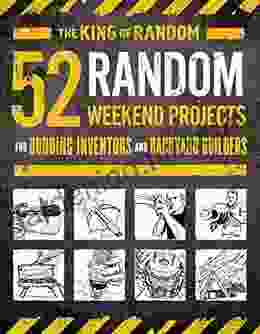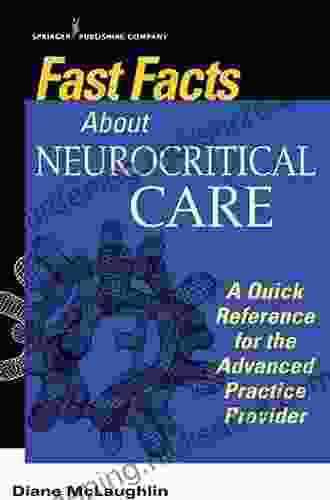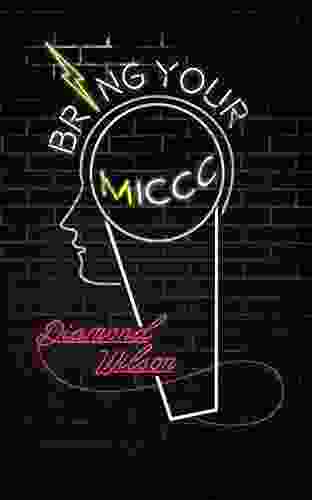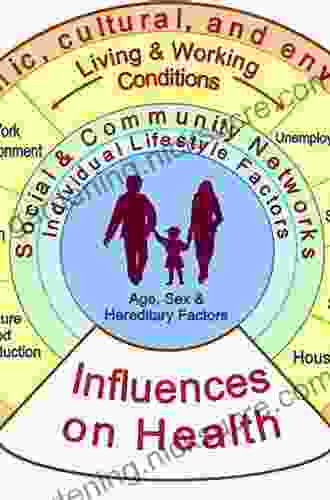Fast Facts About Neurocritical Care: A Comprehensive Guide

Neurocritical care is a specialized field of medicine that focuses on the diagnosis and treatment of patients with acute neurological injuries or illnesses. It is a rapidly growing field, and there are many new developments that are improving the outcomes of patients with neurological emergencies.
4.7 out of 5
| Language | : | English |
| File size | : | 8997 KB |
| Text-to-Speech | : | Enabled |
| Screen Reader | : | Supported |
| Enhanced typesetting | : | Enabled |
| Print length | : | 231 pages |
This article will provide an overview of neurocritical care, including the history, pathophysiology, diagnosis, and treatment of common neurological emergencies.
History of Neurocritical Care
The origins of neurocritical care can be traced back to the early 1900s, when surgeons began to develop new techniques for operating on the brain. In the 1950s, the development of the electroencephalogram (EEG) allowed doctors to monitor the electrical activity of the brain, which helped to diagnose and treat neurological disorders.
In the 1960s, the development of the intensive care unit (ICU) provided a dedicated space for the care of critically ill patients, including those with neurological injuries or illnesses. The first neurocritical care unit was established at the University of California, San Francisco in 1983.
Pathophysiology of Neurological Emergencies
Neurological emergencies are caused by a variety of factors, including:
* Trauma * Stroke * Subarachnoid hemorrhage * Meningitis * Encephalitis * Seizures * Hypoxia * Hyperthermia * Hypoglycemia
These factors can lead to a variety of neurological injuries, including:
* Brain contusions * Intracerebral hemorrhages * Subarachnoid hemorrhages * Cerebral edema * Ischemic stroke * Hemorrhagic stroke * Meningitis * Encephalitis * Seizures
Diagnosis of Neurological Emergencies
The diagnosis of neurological emergencies is based on a combination of the patient's history, physical examination, and neuroimaging studies.
The history should include information about the patient's symptoms, the time of onset, and any potential risk factors. The physical examination should include a neurological examination to assess the patient's level of consciousness, pupillary response, motor function, and sensory function.
Neuroimaging studies, such as computed tomography (CT) and magnetic resonance imaging (MRI),can help to identify the underlying cause of the neurological emergency.
Treatment of Neurological Emergencies
The treatment of neurological emergencies depends on the underlying cause. However, there are some general principles of treatment that apply to all neurological emergencies.
These principles include:
* Maintaining airway and breathing * Controlling seizures * Reducing intracranial pressure * Treating infections * Managing pain
Prognosis for Neurological Emergencies
The prognosis for neurological emergencies depends on the severity of the injury or illness and the patient's overall health. However, with early diagnosis and treatment, many patients with neurological emergencies can make a full recovery.
Neurocritical care is a rapidly growing field that is improving the outcomes of patients with neurological emergencies. By understanding the pathophysiology, diagnosis, and treatment of common neurological emergencies, healthcare professionals can provide the best possible care for their patients.
4.7 out of 5
| Language | : | English |
| File size | : | 8997 KB |
| Text-to-Speech | : | Enabled |
| Screen Reader | : | Supported |
| Enhanced typesetting | : | Enabled |
| Print length | : | 231 pages |
Do you want to contribute by writing guest posts on this blog?
Please contact us and send us a resume of previous articles that you have written.
 Fiction
Fiction Non Fiction
Non Fiction Romance
Romance Mystery
Mystery Thriller
Thriller SciFi
SciFi Fantasy
Fantasy Horror
Horror Biography
Biography Selfhelp
Selfhelp Business
Business History
History Classics
Classics Poetry
Poetry Childrens
Childrens Young Adult
Young Adult Educational
Educational Cooking
Cooking Travel
Travel Lifestyle
Lifestyle Spirituality
Spirituality Health
Health Fitness
Fitness Technology
Technology Science
Science Arts
Arts Crafts
Crafts DIY
DIY Gardening
Gardening Petcare
Petcare Diane Duane
Diane Duane Duy Tran
Duy Tran Mark Hatmaker
Mark Hatmaker Evan Brashier
Evan Brashier Patricia S Potter Efron
Patricia S Potter Efron Marty Bartholomew
Marty Bartholomew Jordan Ifueko
Jordan Ifueko Kate Usher
Kate Usher Richard Adams
Richard Adams Kyla Stone
Kyla Stone Al Ford
Al Ford Seymour Simon
Seymour Simon Olszewski Marie Erin
Olszewski Marie Erin Ernest Shackleton
Ernest Shackleton Glenn N Levine
Glenn N Levine Jo Frost
Jo Frost Heather Demetrios
Heather Demetrios Terence Grieder
Terence Grieder Betty Crocker
Betty Crocker Elaine Beaumont
Elaine Beaumont Ziemowit Wojciechowski
Ziemowit Wojciechowski Temple Grandin
Temple Grandin Dr Danny Penman
Dr Danny Penman A C Davison
A C Davison Dr Katayune Kaeni
Dr Katayune Kaeni Michael W Ford
Michael W Ford Dave Gerr
Dave Gerr Michael Clarke
Michael Clarke Caroline Porter Thomas
Caroline Porter Thomas Dan Blackburn
Dan Blackburn John Kreiter
John Kreiter Dan Falk
Dan Falk Riddleland
Riddleland Adam Silvera
Adam Silvera Carl J Sindermann
Carl J Sindermann James D Long
James D Long Terrence Real
Terrence Real Tony Horton
Tony Horton Richard Ania
Richard Ania Andrew Weber
Andrew Weber Jenifer Fox
Jenifer Fox William A Dembski
William A Dembski Robert Pondiscio
Robert Pondiscio Emily A Duncan
Emily A Duncan Gianni La Forza
Gianni La Forza Jeffrey A Greene
Jeffrey A Greene John Hands
John Hands Josh Mulvihill
Josh Mulvihill William Regal
William Regal Nikki Grimes
Nikki Grimes G I Gurdjieff
G I Gurdjieff Lewis Henry Morgan
Lewis Henry Morgan 6th Edition Kindle Edition
6th Edition Kindle Edition Neal Bascomb
Neal Bascomb Daphne Adler
Daphne Adler Joe Cuhaj
Joe Cuhaj Chris Froome
Chris Froome Christopher Mcdougall
Christopher Mcdougall Kerry Fraser
Kerry Fraser Jay Wilkinson
Jay Wilkinson Theris A Touhy
Theris A Touhy Christy Jordan
Christy Jordan Whit Honea
Whit Honea 2012th Edition Kindle Edition
2012th Edition Kindle Edition Sam Irwin
Sam Irwin Karen Myers
Karen Myers Alec Crawford
Alec Crawford Steven D Levitt
Steven D Levitt Chase Williams
Chase Williams Tyler Vanderweele
Tyler Vanderweele 1st English Ed Edition Kindle Edition
1st English Ed Edition Kindle Edition E Bruce Goldstein
E Bruce Goldstein Louis Stanislaw
Louis Stanislaw Marie Louise Von Franz
Marie Louise Von Franz Oscar Wegner
Oscar Wegner James Mcnicholas
James Mcnicholas David Cheng
David Cheng Tim R Wolf
Tim R Wolf Bruno Latour
Bruno Latour A Digger Stolz
A Digger Stolz Alan Jacobs
Alan Jacobs Andrew Shapland
Andrew Shapland Gayle Jervis
Gayle Jervis Simon G Thompson
Simon G Thompson Jason Curtis
Jason Curtis Janetti Marotta
Janetti Marotta Gershon Ben Keren
Gershon Ben Keren Rashad Jennings
Rashad Jennings Vibrant Publishers
Vibrant Publishers Jamaica Stevens
Jamaica Stevens Lin Pardey
Lin Pardey Kelly Slater
Kelly Slater P G Maxwell Stuart
P G Maxwell Stuart Gregory J Privitera
Gregory J Privitera Kristine Setting Clark
Kristine Setting Clark Stewart Smith
Stewart Smith Mark Brazil
Mark Brazil Dr Brenda Stratton
Dr Brenda Stratton David Kushner
David Kushner Micah Goodman
Micah Goodman Elizabeth Wenk
Elizabeth Wenk Natasha Preston
Natasha Preston Max Domi
Max Domi Michael Romano
Michael Romano Oliver Theobald
Oliver Theobald Josh Elster
Josh Elster L S Boos
L S Boos Billie Jean King
Billie Jean King 2nd Edition Kindle Edition
2nd Edition Kindle Edition Paul Martin
Paul Martin Deanne Howell
Deanne Howell Fata Ariu Levi
Fata Ariu Levi Bob Welch
Bob Welch David Beaupre
David Beaupre Jasper Godwin Ridley
Jasper Godwin Ridley Nick Winkelman
Nick Winkelman Christoph Delp
Christoph Delp Miranda Castro
Miranda Castro Patricia Moore Pastides
Patricia Moore Pastides Raymond H Thompson
Raymond H Thompson Amy Chua
Amy Chua Juno Dawson
Juno Dawson Tom Pyszczynski
Tom Pyszczynski Katie M John
Katie M John Theresa Cheung
Theresa Cheung Starley Talbott
Starley Talbott Gregory A Boyd
Gregory A Boyd Michael Geheran
Michael Geheran Eric Haseltine
Eric Haseltine Roselyn Teukolsky
Roselyn Teukolsky Tami Lynn Kent
Tami Lynn Kent Allan Mundsack
Allan Mundsack Ellen Levitt
Ellen Levitt Elizabeth D Hutchison
Elizabeth D Hutchison Steve Magness
Steve Magness David Simkins
David Simkins Patrick Lange
Patrick Lange Joseph Chilton Pearce
Joseph Chilton Pearce 2005th Edition Kindle Edition
2005th Edition Kindle Edition Tracy Gharbo
Tracy Gharbo Leigh Calvez
Leigh Calvez Patrick Hunt
Patrick Hunt Leonard Pellman
Leonard Pellman Jason Miller
Jason Miller Barbara Klein
Barbara Klein Diamond Wilson
Diamond Wilson Mohamed Elgendy
Mohamed Elgendy Muata Ashby
Muata Ashby Patrick E Mcgovern
Patrick E Mcgovern George Pendle
George Pendle Jiichi Watanabe
Jiichi Watanabe Eric I Karchmer
Eric I Karchmer John Gookin
John Gookin Ben Egginton
Ben Egginton Grant Thompson
Grant Thompson Martha Menchaca
Martha Menchaca Justin Bower
Justin Bower Iris Bohnet
Iris Bohnet Hong Chen
Hong Chen Joseph E Garland
Joseph E Garland Bill Reif
Bill Reif Andrew G Marshall
Andrew G Marshall Mike Tyson
Mike Tyson Wong Kiew Kit
Wong Kiew Kit Shelby Hailstone Law
Shelby Hailstone Law 4th Edition Kindle Edition With Audio Video
4th Edition Kindle Edition With Audio Video Heather Job
Heather Job Cindy Kennedy
Cindy Kennedy Barnett Rich
Barnett Rich Miko Flohr
Miko Flohr Patrick Viafore
Patrick Viafore John Green
John Green Bertolt Brecht
Bertolt Brecht Mimi Lemay
Mimi Lemay Shonna Slayton
Shonna Slayton Bookrags Com
Bookrags Com Michael Alvear
Michael Alvear Naomi Scott
Naomi Scott Robert Peter Gale
Robert Peter Gale Andrea Wulf
Andrea Wulf Melissa Cheyney
Melissa Cheyney Joe Oliver
Joe Oliver Dominik Hartmann
Dominik Hartmann Edyta Roszko
Edyta Roszko Mitch Rubman
Mitch Rubman Lars Behnke
Lars Behnke Robert Venditti
Robert Venditti Howard Mudd
Howard Mudd Alessa Ellefson
Alessa Ellefson 7th Edition Kindle Edition
7th Edition Kindle Edition Sandra Mizumoto Posey
Sandra Mizumoto Posey Rowan Ricardo Phillips
Rowan Ricardo Phillips Cynthia Bourgeault
Cynthia Bourgeault Robert Bauval
Robert Bauval Lj Rivers
Lj Rivers Carol Stock Kranowitz
Carol Stock Kranowitz Chris Dietzel
Chris Dietzel Leonardo Trasande
Leonardo Trasande Justin Doyle
Justin Doyle Anthony Arvanitakis
Anthony Arvanitakis Syougo Kinugasa
Syougo Kinugasa Steve Kantner
Steve Kantner Robert Ferguson
Robert Ferguson Marisha Pessl
Marisha Pessl Andre Norton
Andre Norton Debra Barnes
Debra Barnes Rifujin Na Magonote
Rifujin Na Magonote J Morgan Mcgrady
J Morgan Mcgrady Nnedi Okorafor
Nnedi Okorafor Sheryl Crow
Sheryl Crow Greta Solomon
Greta Solomon Claudio De Castro
Claudio De Castro Amy Ogle
Amy Ogle Steve Garnett
Steve Garnett Justin Hammond
Justin Hammond Dervla Murphy
Dervla Murphy Cassandra Johnson
Cassandra Johnson Jong Chul Ye
Jong Chul Ye Prerna Lal
Prerna Lal Nate G Hilger
Nate G Hilger Jon Dunn
Jon Dunn Karl Morris
Karl Morris Leon Anderson
Leon Anderson Emma Lord
Emma Lord Elizabeth Sims
Elizabeth Sims Susan E Cayleff
Susan E Cayleff John Collins
John Collins Tok Hui Yeap Rd Csp Ld
Tok Hui Yeap Rd Csp Ld Don Fink
Don Fink Peter Cossins
Peter Cossins Kristi K Hoffman
Kristi K Hoffman Jim Burns
Jim Burns Jean Clottes
Jean Clottes Nadav Snir
Nadav Snir Jonathan Ross
Jonathan Ross Subsequent Edition Kindle Edition
Subsequent Edition Kindle Edition Brennan Barnard
Brennan Barnard Monica Sorrenson
Monica Sorrenson Gail Craswell
Gail Craswell Sam Goulden
Sam Goulden Jay Cassell
Jay Cassell Linda A Roussel
Linda A Roussel Manhattan Prep
Manhattan Prep Gary S Thorpe
Gary S Thorpe Geri Ann Galanti
Geri Ann Galanti Aubrey Clayton
Aubrey Clayton Donna M Mertens
Donna M Mertens Eva Feder Kittay
Eva Feder Kittay Bernard Rosner
Bernard Rosner J D Salinger
J D Salinger Edward Frenkel
Edward Frenkel Greg Midland
Greg Midland Ricki E Kantrowitz
Ricki E Kantrowitz Freda Mcmanus
Freda Mcmanus 006 Edition Kindle Edition
006 Edition Kindle Edition Herbert Feigl
Herbert Feigl Brooklyn James
Brooklyn James Suzie Cooney
Suzie Cooney Harry Middleton
Harry Middleton Margaret Littman
Margaret Littman 50minutos Es
50minutos Es Lareina Rule
Lareina Rule Kekla Magoon
Kekla Magoon Thomas R Baechle
Thomas R Baechle Debra Pascali Bonaro
Debra Pascali Bonaro Lucas Whitecotton
Lucas Whitecotton Gregory Collins
Gregory Collins Kevin Paul
Kevin Paul Mark V Wiley
Mark V Wiley Jillian Dodd
Jillian Dodd Apsley Cherry Garrard
Apsley Cherry Garrard Bonnie Scott
Bonnie Scott Collins Gcse
Collins Gcse Brenda Dehaan
Brenda Dehaan Dan Wingreen
Dan Wingreen Patricia O Quinn
Patricia O Quinn Aly Madhavji
Aly Madhavji Sarah Templeton
Sarah Templeton Alden Jones
Alden Jones A R Bernard
A R Bernard Bernard Cornwell
Bernard Cornwell John Coleman
John Coleman Elizabeth Bradfield
Elizabeth Bradfield Jasmine Greene
Jasmine Greene Jd Brown
Jd Brown Edward Rosenfeld
Edward Rosenfeld Buddy Martin
Buddy Martin Jacqueeia Ferguson
Jacqueeia Ferguson Nathan Jendrick
Nathan Jendrick Porter Fox
Porter Fox Bruce Watson
Bruce Watson James Diego Vigil
James Diego Vigil Leslie Leyland Fields
Leslie Leyland Fields Samantha Lovely
Samantha Lovely Roger Gordon
Roger Gordon Ulla Sarmiento
Ulla Sarmiento Yan Shen
Yan Shen Bobby Blair
Bobby Blair Jeff Gill
Jeff Gill A C Grayling
A C Grayling Chris I Naylor
Chris I Naylor Deepak Chopra
Deepak Chopra Kennedy Achille
Kennedy Achille Jessica Shortall
Jessica Shortall Russell Miller
Russell Miller L Madison
L Madison Broccoli Lion
Broccoli Lion Joe Chilson
Joe Chilson Pamela Adams
Pamela Adams Mauricio Cabrini
Mauricio Cabrini Laurie Forest
Laurie Forest Robert S Mueller
Robert S Mueller John A Yoegel
John A Yoegel Nathalie Dupree
Nathalie Dupree 1st Ed 2016 Edition Kindle Edition
1st Ed 2016 Edition Kindle Edition Andy Charalambous
Andy Charalambous Laura Bright
Laura Bright Eli Boschetto
Eli Boschetto Brian Kent
Brian Kent Meik Wiking
Meik Wiking Robert Mcentarffer
Robert Mcentarffer George W E Nickelsburg
George W E Nickelsburg Kelly Skeen
Kelly Skeen Geoffrey West
Geoffrey West Katie J Trent
Katie J Trent Jamie Hand
Jamie Hand Tasha Dunn
Tasha Dunn Natalie Smith
Natalie Smith Peter Wohlleben
Peter Wohlleben Christopher Lakeman
Christopher Lakeman Jeremy Desilva
Jeremy Desilva Martin Mobraten
Martin Mobraten Marcia Verduin
Marcia Verduin David Lloyd Kilmer
David Lloyd Kilmer A Christine Harris
A Christine Harris 3rd Edition Kindle Edition
3rd Edition Kindle Edition Lesli Richards
Lesli Richards Bryan Smith
Bryan Smith Thomas Wentworth Higginson
Thomas Wentworth Higginson Jack M Bloom
Jack M Bloom Lois Duncan
Lois Duncan Tom Lyons
Tom Lyons Clint Malarchuk
Clint Malarchuk Charles Seife
Charles Seife Mary H K Choi
Mary H K Choi Skye Genaro
Skye Genaro 8th Edition Kindle Edition
8th Edition Kindle Edition 1st Edition Kindle Edition
1st Edition Kindle Edition Monte Burch
Monte Burch Brian Thompson
Brian Thompson 5th Edition Kindle Edition
5th Edition Kindle Edition Michaela Stith
Michaela Stith Maureen Johnson
Maureen Johnson 3rd Ed Edition Kindle Edition
3rd Ed Edition Kindle Edition Dustyn Roberts
Dustyn Roberts Tom Mchale
Tom Mchale Mark Gregston
Mark Gregston Stefan Hofer
Stefan Hofer Paul Deepan
Paul Deepan Paul Johnson
Paul Johnson Sadie Radinsky
Sadie Radinsky Kristen Riecke
Kristen Riecke Lee Smolin
Lee Smolin Claire Sierra
Claire Sierra Dinokids Press
Dinokids Press Andrew Maraniss
Andrew Maraniss Icon Digital Publishing
Icon Digital Publishing Kate Spencer
Kate Spencer Theodore X O Connell
Theodore X O Connell Theodor W Adorno
Theodor W Adorno Liesbet Collaert
Liesbet Collaert Raymond Buckland
Raymond Buckland Peter Dewhurst
Peter Dewhurst Ellen Sue Turner
Ellen Sue Turner Stephen P Anderson
Stephen P Anderson Heather Rain Mazen Korbmacher
Heather Rain Mazen Korbmacher Jozef Nauta
Jozef Nauta John Iceland
John Iceland Janet Sasson Edgette
Janet Sasson Edgette Alice Ginott
Alice Ginott Andrew Collins
Andrew Collins Manuel De La Cruz
Manuel De La Cruz Filipe Masetti Leite
Filipe Masetti Leite Pat Dorsey
Pat Dorsey Rick Gurnsey
Rick Gurnsey Gina Rae La Cerva
Gina Rae La Cerva 50minutes Com
50minutes Com Richard Bromfield
Richard Bromfield Tony Hernandez Pumarejo
Tony Hernandez Pumarejo Patricia Stevens
Patricia Stevens Eloise Jarvis Mcgraw
Eloise Jarvis Mcgraw J Michael Leger
J Michael Leger Louis Liebenberg
Louis Liebenberg Justine Brooks Froelker
Justine Brooks Froelker Claire Baker
Claire Baker Sloane Mcclain
Sloane Mcclain Lenora Ucko
Lenora Ucko Nancy Keene
Nancy Keene Kenny Casanova
Kenny Casanova Robert A Johnson
Robert A Johnson Terence N D Altroy
Terence N D Altroy Chris Lehto
Chris Lehto L Ulloque
L Ulloque Chris Stewart
Chris Stewart Frank Sargeant
Frank Sargeant Sherry Monahan
Sherry Monahan Robert K Tyson
Robert K Tyson Garrett Grolemund
Garrett Grolemund 4th Edition Kindle Edition
4th Edition Kindle Edition Eric Dominy
Eric Dominy Christa Orecchio
Christa Orecchio Erika Bornman
Erika Bornman Kerri Maniscalco
Kerri Maniscalco Bree Moore
Bree Moore Jacquetta Hawkes
Jacquetta Hawkes Emma Dalton
Emma Dalton Dalai Lama
Dalai Lama John Gribbin
John Gribbin Keith Siragusa
Keith Siragusa Z Justin Ren
Z Justin Ren Mei Fong
Mei Fong Robert Thurston
Robert Thurston Susan Walker
Susan Walker Michael S Gazzaniga
Michael S Gazzaniga Breanna Lam
Breanna Lam Naomi Feil
Naomi Feil
Light bulbAdvertise smarter! Our strategic ad space ensures maximum exposure. Reserve your spot today!

 Eli BrooksCabales Serrada Escrima: A Comprehensive Guide to the Filipino Martial Art of...
Eli BrooksCabales Serrada Escrima: A Comprehensive Guide to the Filipino Martial Art of... Ervin BellFollow ·2.5k
Ervin BellFollow ·2.5k Brian BellFollow ·5.1k
Brian BellFollow ·5.1k Boris PasternakFollow ·7.8k
Boris PasternakFollow ·7.8k Victor TurnerFollow ·9.2k
Victor TurnerFollow ·9.2k Cole PowellFollow ·13.4k
Cole PowellFollow ·13.4k Dakota PowellFollow ·12.1k
Dakota PowellFollow ·12.1k Thomas MannFollow ·2.6k
Thomas MannFollow ·2.6k F. Scott FitzgeraldFollow ·10.6k
F. Scott FitzgeraldFollow ·10.6k

 Finn Cox
Finn CoxA Comprehensive Guide for Budding Inventors and Backyard...
For those with a restless mind and a...

 Forrest Reed
Forrest ReedThe Ultimate Shopper's Guide to Purchasing Weight Lifting...
Are you looking...

 Dillon Hayes
Dillon HayesThe Chemical Choir: Unveiling the Enchanting Symphony of...
In the enigmatic realm of science, where...

 Ryūnosuke Akutagawa
Ryūnosuke AkutagawaStumbling Thru: Hike Your Own Hike
In the realm of outdoor adventures,...

 Terry Pratchett
Terry PratchettUnlock Your Math Skills: A Comprehensive Guide to Chenier...
Math plays a vital role in...
4.7 out of 5
| Language | : | English |
| File size | : | 8997 KB |
| Text-to-Speech | : | Enabled |
| Screen Reader | : | Supported |
| Enhanced typesetting | : | Enabled |
| Print length | : | 231 pages |












